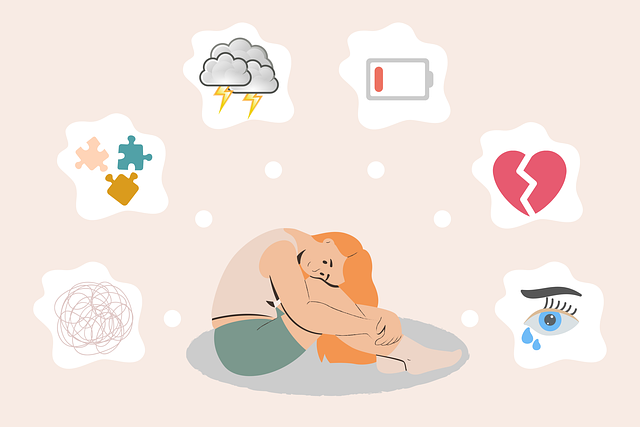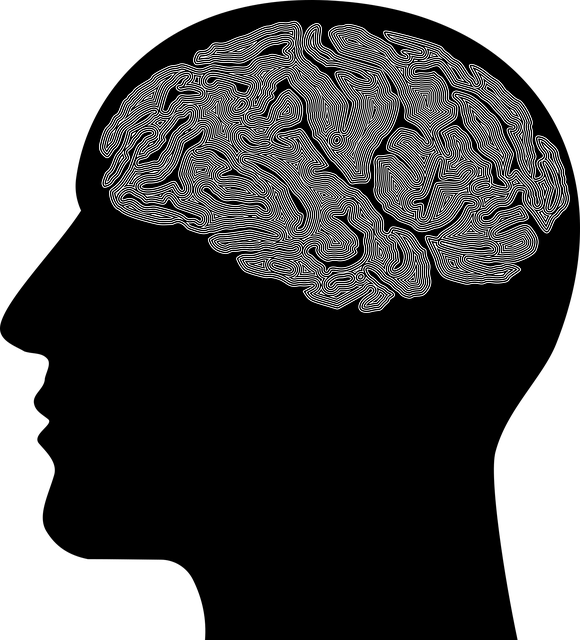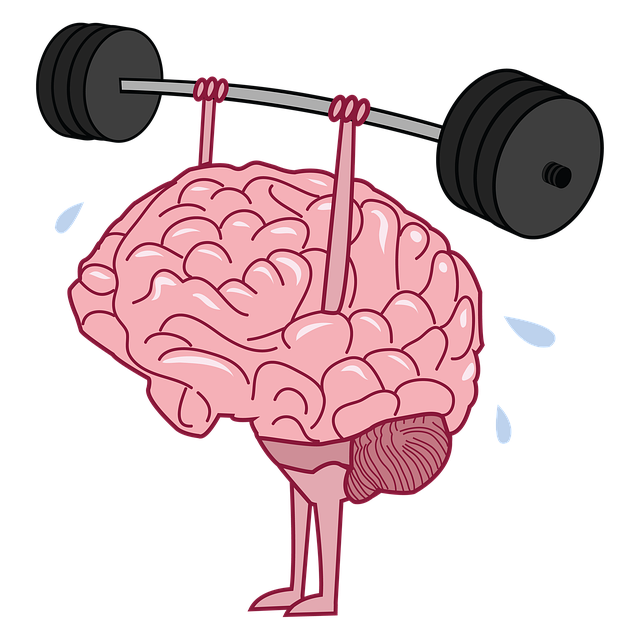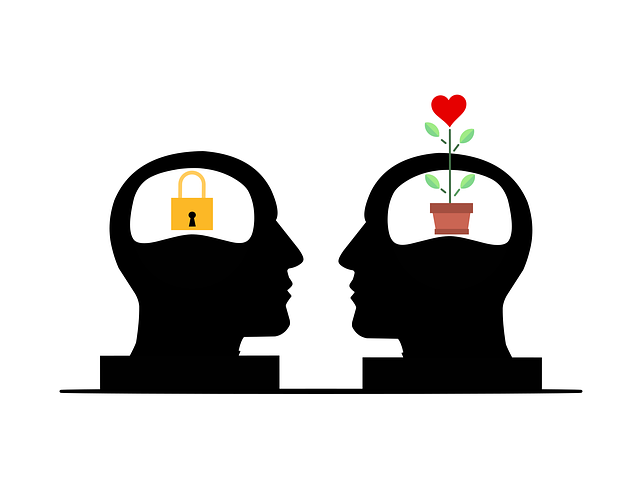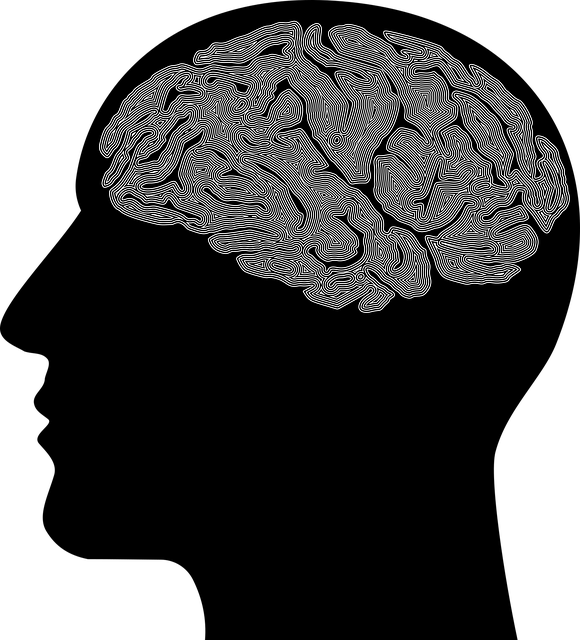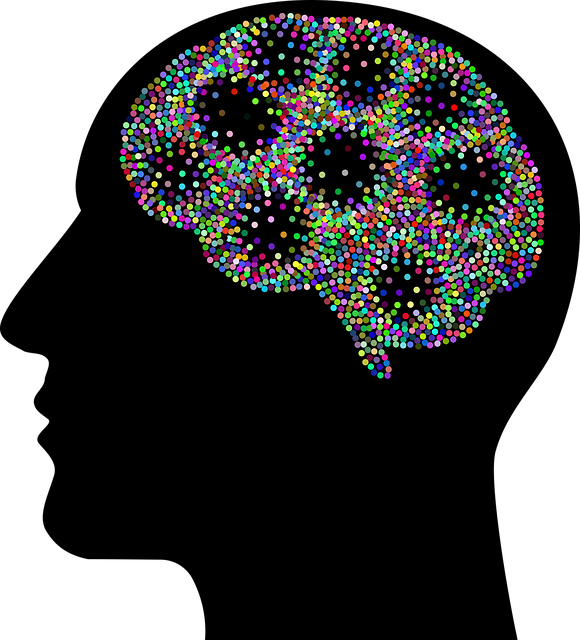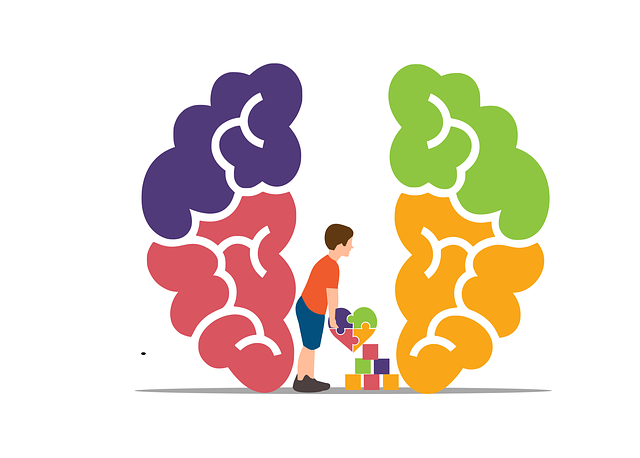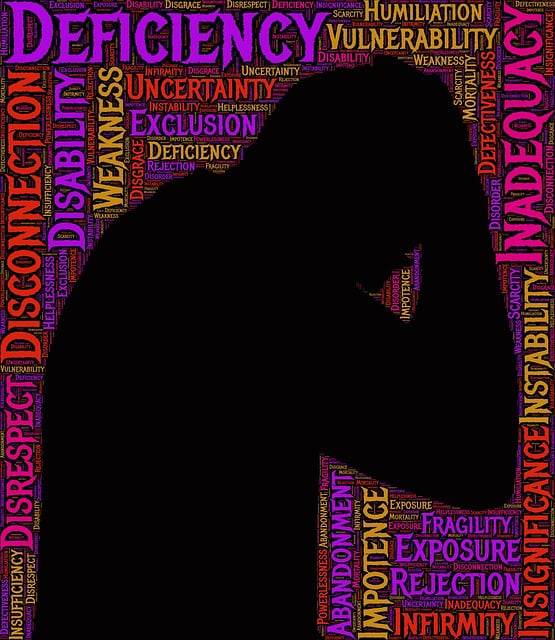Boulder Codependency Therapy leads the way in addressing mental health issues through innovative education programs that empower individuals and foster holistic well-being. By integrating mindfulness meditation, positive thinking, crisis intervention guidance, and social skills training, they create a supportive environment where residents can manage stress, anxiety, and depression effectively. Their tailored strategies, coupled with engaging content and diverse teaching methods, equip participants with essential tools for mental wellness, breaking stigmas and promoting a culture that prioritizes mental health. Through strategic planning, cultural sensitivity, and continuous evaluation, Boulder Codependency Therapy ensures their programs remain relevant and impactful.
“In today’s fast-paced world, prioritizing mental health is more critical than ever. This article explores the design of an impactful Mental Health Education Program, addressing a pressing need in communities across the nation. We delve into the significance of early intervention and education, particularly focusing on strategies to combat issues like codependency. By examining the impact on individuals and society as a whole, we highlight the potential for programs to foster resilience and overall well-being. Utilizing engaging content and interactive methods, this approach mirrors the innovative practices at Boulder Codependency Therapy.”
- Understanding Mental Health and Its Impact on Individuals and Communities
- Identifying the Need for a Comprehensive Education Program
- Key Components of an Effective Mental Health Education Initiative
- Designing Engaging Content and Interactive Learning Experiences
- Implementation, Evaluation, and Continuous Improvement Strategies for Success
Understanding Mental Health and Its Impact on Individuals and Communities

Understanding mental health is paramount when designing effective educational programs aimed at fostering well-being. Mental health issues, such as anxiety, depression, and codependency, significantly impact individuals’ daily lives and can disrupt their ability to function optimally. For instance, in a bustling community like Boulder, Colorado, where folks embrace an active lifestyle, mental health challenges may go unnoticed or stigmatized, hindering individuals from seeking the help they need.
Community-based programs play a crucial role in raising awareness about mental wellness. By incorporating practices such as mindfulness meditation and positive thinking techniques, these initiatives can empower residents to manage stress and anxiety relief effectively. The ultimate goal is to create a supportive environment where people feel comfortable discussing their experiences, seeking therapy, and embracing holistic approaches to well-being, just like Boulder Codependency Therapy offers for its community.
Identifying the Need for a Comprehensive Education Program

In today’s fast-paced world, mental health issues have become increasingly prevalent, affecting individuals across various demographics. This growing concern underscores the need for comprehensive education programs that can effectively address and prevent these challenges. Boulder Codependency Therapy has recognized this critical gap in understanding and has taken the initiative to develop innovative solutions. By focusing on both individual and public awareness, their approach aims to create a holistic environment that promotes mental wellness.
The design of a successful program involves tailored education that empowers individuals with knowledge about recognizing and managing their emotional well-being. This includes strategies for depression prevention and fostering healthier relationships. Moreover, public awareness campaigns play a pivotal role in breaking down stigma and encouraging open conversations around mental health. Development of such coaching programs not only benefits the affected individuals but also contributes to a broader culture that prioritizes and supports mental wellness.
Key Components of an Effective Mental Health Education Initiative

An effective mental health education program should incorporate several key components to foster a comprehensive understanding and improve overall well-being. One such initiative could include crisis intervention guidance, equipping individuals with tools to navigate and manage acute mental health episodes. This aspect is crucial for recognizing signs of distress and providing immediate support, especially in scenarios like Boulder Codependency Therapy settings.
Additionally, incorporating mental wellness journaling exercises can offer participants a safe space to express their thoughts and emotions. Such exercises promote self-awareness and provide guidance on managing stress and anxiety. Along with this, developing coping skills is vital; teaching practical strategies for dealing with challenges can empower individuals to maintain stability and enhance their resilience in the face of adversity.
Designing Engaging Content and Interactive Learning Experiences

In designing a mental health education program, creating engaging content and interactive learning experiences is paramount to ensure participants remain captivated and actively involved. Incorporating diverse teaching methods such as case studies, role-playing scenarios, and group discussions can effectively bridge theoretical knowledge with practical application, particularly relevant for addressing complex issues like codependency, a focus often explored in Boulder Codependency Therapy. These interactive elements not only facilitate better comprehension but also encourage critical thinking and problem-solving skills essential for mental wellness professionals.
Leveraging multimedia resources, including curated Mental Wellness Podcast Series Production, can add depth and variety to the learning experience. Integrating real-life stories, expert interviews, and evidence-based practices allows participants to explore different perspectives and gain insights into various therapeutic approaches. Moreover, incorporating social skills training sessions can enhance communication and interpersonal abilities, crucial for building strong therapeutic alliances and providing effective care. Through these engaging content delivery methods, the program equips mental health professionals with a comprehensive skill set, enabling them to conduct thorough risk assessments (as per industry standards) and deliver quality care in their practice settings.
Implementation, Evaluation, and Continuous Improvement Strategies for Success

Implementing a mental health education program requires careful planning and consideration. One key strategy is to engage stakeholders at every stage, from design to evaluation. This includes collaborating with mental health professionals, educators, community leaders, and individuals with lived experiences to ensure the program meets real needs and resonates with diverse audiences. Customizing the content and delivery methods according to cultural sensitivity and accessibility is essential for success.
Evaluation is paramount to gauge the impact and effectiveness of the program. Utilizing mixed-methods approaches, combining quantitative data from surveys and qualitative insights through interviews or focus groups, provides a comprehensive understanding of participant experiences. For instance, tracking improvements in emotional regulation skills through mindfulness meditation practices or measuring changes in attitudes towards mental health issues through public awareness campaigns development can offer valuable metrics. Continuously gathering feedback and making data-driven adjustments ensure the program’s ongoing relevance and Boulder Codependency Therapy integration, fostering a culture of continuous improvement.
Mental health education programs play a pivotal role in fostering well-being on both individual and community levels. By integrating essential components like understanding mental health, identifying needs, and creating interactive learning experiences, we can revolutionize mental healthcare access, much like Boulder Codependency Therapy has done. Effective implementation and ongoing evaluation ensure these programs remain impactful and adaptive to evolving needs. Let’s prioritize mental health education as a powerful tool for enhancing our collective resilience and quality of life.

